I confess that I routinely use noises to communicate with my horses, along with hand gestures. Here are the sounds that I make:
- nicker in greeting, accompanied by lowering my head. (I even unconsciously did this when I passed friends in the halls at high school!)
- mare squeal when a horse tries to score a dominance "point" on me (mostly in play). My horses think that this is hilarious. So does my farrier.
- click = yes (see previous blog post "Give Your Horse a Yes")
- smootch = pay attention/move your feet
- whistle = come here
- snort = "I see it too and will challenge it for you," followed by looking away, relaxing, and blowing to say "false alarm."
With dogs, I don't do as much - probably because they are so good at interpreting people words and facial expressions. I do sometimes woof (to say "pay attention, something may be wrong") and growl (rarely) over my food. I also make ferret, guinea pig, and cockatiel noises..
With consistent use, verbal commands can be understood by horses, especially in conjunction with body language. Words/phrases that I often use are:
- "Back it up"
- "Move over"
- "Pick it up" (hoof)
- "Walk, Trot, Canter, Gait-up"
- "Whoa"
From observation, I've come to realize that horses are masters of "small talk." There is constant communication and give/take exchanges between them. When a horse asks me a question, I respect him by taking the time to give a clear, polite answer - be it in the form of a noise, gesture, or word. Asking a horse for his opinion is polite too, such as "Would you like me to scratch that for you?" or "Would you like me to kill that bad bug for you?" or "May I come closer?"
Why is it ok for us to intrude on the herd and remove a herd mate without spending a few minutes with the entire herd? Group mutual grooming (including me) after meals reinforces our intra-herd bonds. I don't permit dominance games when I'm around - bossy mare that I am. ;-) I also guard whomever is eating, which they seem to appreciate.
Why is it ok for horses to play the games that we want them to play, the way we want them played, but taboo for a horse to initiate horse games with us? My horses like to play "I'm going to make you lift your forefoot" and "I'm going to bite your lip and hold on." We have modified these games so that I can play them too. If one of them wants me to move my foot as evidenced by them swinging their mouth toward my leg, I do a mare squeal but sometimes also lift my foot. Next, I tap or reach for his chestnut and he will move his foot. They think that this is highly entertaining. Never do they swing hard or fast at my leg. We play "I'm going to bite your lip" by them swinging gently toward me to which I respond with a squeal and by tugging on his chin hairs or holding his upper or lower lip. Sometimes we also play the "I'm going to tug your tongue when you stick it out" game.
The four of us (3 geldings and me) are getting along great. Since I work from home and their paddock gate is about 10 feet from my car and in easy view of my deck, I interact with them almost constantly and I wouldn't trade it for the world!



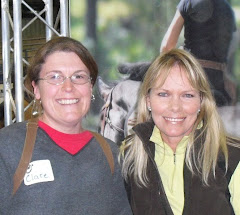




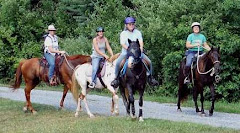

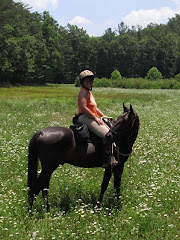
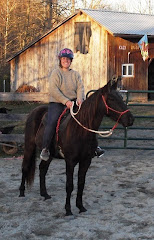
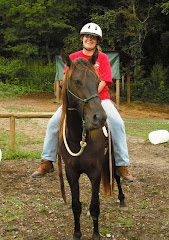
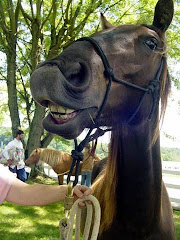

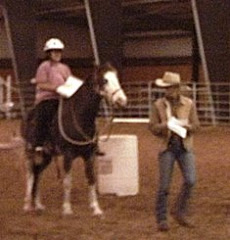

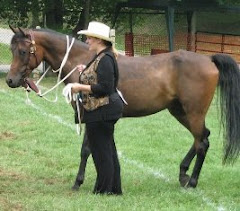
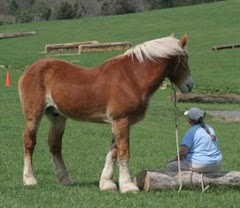


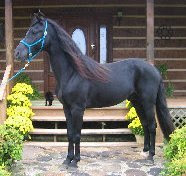
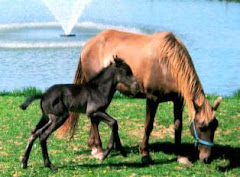
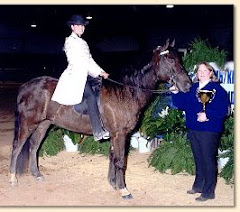
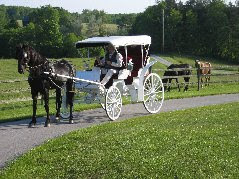
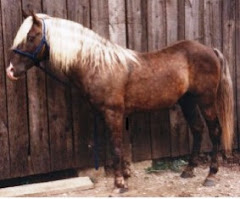




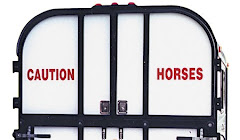
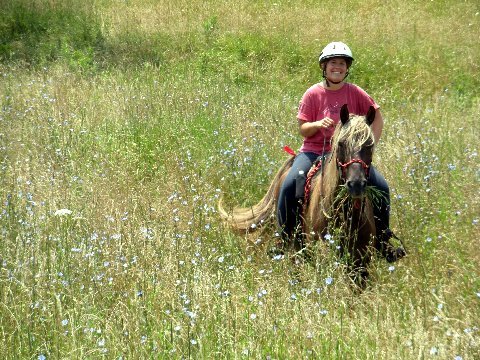
No comments:
Post a Comment